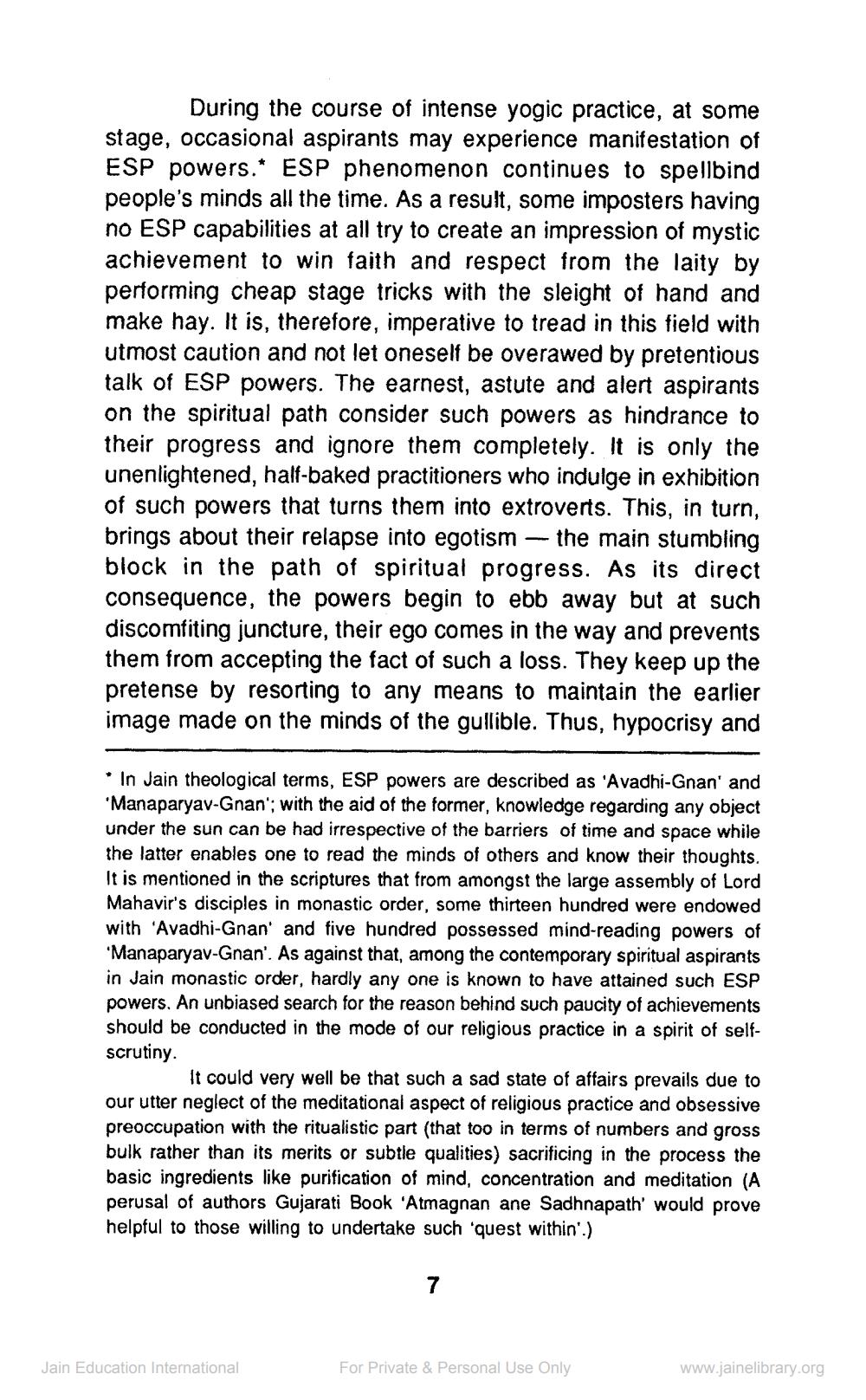________________
During the course of intense yogic practice, at some stage, occasional aspirants may experience manifestation of ESP powers.* ESP phenomenon continues to spellbind people's minds all the time. As a result, some imposters having no ESP capabilities at all try to create an impression of mystic achievement to win faith and respect from the laity by performing cheap stage tricks with the sleight of hand and make hay. It is, therefore, imperative to tread in this field with utmost caution and not let oneself be overawed by pretentious talk of ESP powers. The earnest, astute and alert aspirants on the spiritual path consider such powers as hindrance to their progress and ignore them completely. It is only the unenlightened, half-baked practitioners who indulge in exhibition of such powers that turns them into extroverts. This, in turn, brings about their relapse into egotism - the main stumbling block in the path of spiritual progress. As its direct consequence, the powers begin to ebb away but at such discomfiting juncture, their ego comes in the way and prevents them from accepting the fact of such a loss. They keep up the pretense by resorting to any means to maintain the earlier image made on the minds of the gullible. Thus, hypocrisy and
* In Jain theological terms, ESP powers are described as 'Avadhi-Gnan' and 'Manaparyav-Gnan'; with the aid of the former, knowledge regarding any object under the sun can be had irrespective of the barriers of time and space while the latter enables one to read the minds of others and know their thoughts. It is mentioned in the scriptures that from amongst the large assembly of Lord Mahavir's disciples in monastic order, some thirteen hundred were endowed with 'Avadhi-Gnan' and five hundred possessed mind-reading powers of 'Manaparyav-Gnan'. As against that, among the contemporary spiritual aspirants in Jain monastic order, hardly any one is known to have attained such ESP powers. An unbiased search for the reason behind such paucity of achievements should be conducted in the mode of our religious practice in a spirit of selfscrutiny.
It could very well be that such a sad state of affairs prevails due to our utter neglect of the meditational aspect of religious practice and obsessive preoccupation with the ritualistic part (that too in terms of numbers and gross bulk rather than its merits or subtle qualities) sacrificing in the process the basic ingredients like purification of mind, concentration and meditation (A perusal of authors Gujarati Book 'Atmagnan ane Sadhnapath' would prove helpful to those willing to undertake such 'quest within'.)
Jain Education International
For Private & Personal Use Only
www.jainelibrary.org




